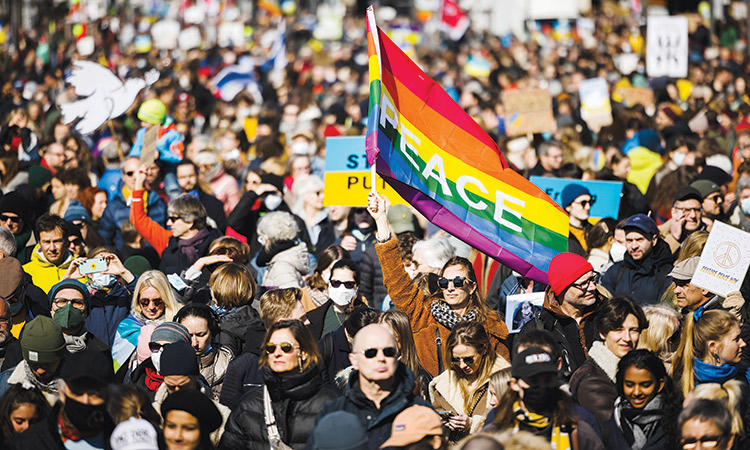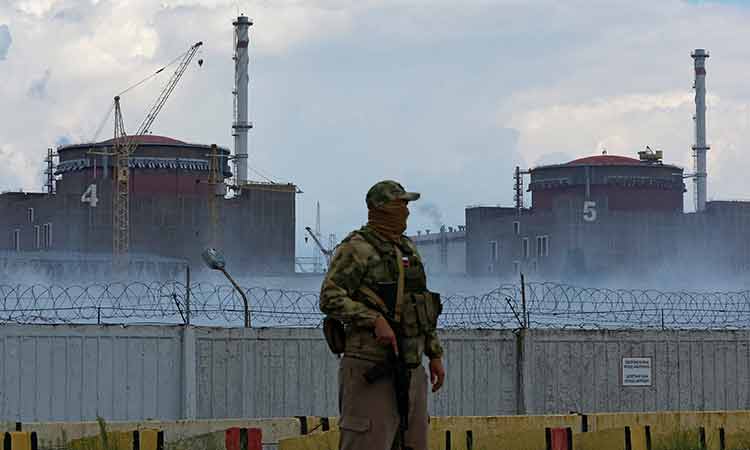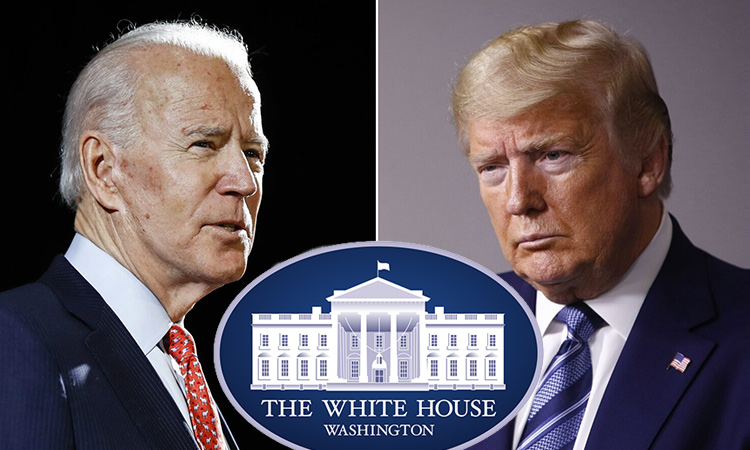Bracing up to face economic fallout of war

BRP Bhaskar
@brpbhaskarIndian journalist with over 50 years of newspaper, news agency and television experience.

Ukrainian soldiers seen at a security camp near a border with Russia.
With the United States and its European allies staying clear of the fighting and limiting their response to sanctions against Russia, the risk of a wider war has been averted.
Initially Ukraine appeared to feel that friends had let it down. But it has given a good account of itself in the battlefield so far. In 12 days of fighting the vastly superior Russian military has not been able to seize Ukraine’s capital or main centres of economic activity.
There are reports that the fighting may intensify soon.
Contrary to the impression created by propagandists on both sides, this isn’t a dirty war, at least not yet.
The Russians said Ukraine was holding back stranded Indian medical students and using them as human shield. India rejected the charge.
The way Russia took control of Ukraine’s nuclear power plants shows it is acting with great care.
The International Atomic Energy Agency confirmed that no safety or security systems were compromised in the attack.
Ukraine has four large nuclear sites, 15 reactors and associated facilities, not counting the Chernobyl site, which experienced a catastrophic meltdown in 1986.
Russia cannot, of course, be negligent in the case of nuclear plants as, being a neighbour, it too will suffer if anything goes wrong.
A war today affects not just the belligerents but people everywhere, especially the poor.
This war broke out as nations worldwide were putting their pandemic-hit economies back on the rails.
BBC quoted World Bank President David Malpass as saying the Ukraine war will cut global economic growth.
He said the war was pushing up food prices and this will hit the poor countries most.
The same concerns were voiced by the International Monetary Fund.
An IMF staff statement said the war, besides causing deaths and suffering, was damaging Ukraine’s physical infrastructure. About 1.5 million Ukrainians have sought refuge in neighbouring countries. This means depletion of the country’s workforce and imposition of additional burden on neighbours.
Both Russia and Ukraine are major grain producers. Prices of wheat and other grains are surging in world markets.
Russia is a major supplier of natural gas to Europe.
Fuel prices are rising everywhere. This will push up transportation costs, leading to rise in commodity prices and fresh inflationary pressures.
Price rise will be felt worldwide, impacting especially poor households, the IMF staff statement said.
The war created a humanitarian crisis for India.
For more than a decade, Ukraine has been a favoured destination of Indian students seeking medical education. Admission formalities are handled by private agencies. No governmental agency, including the embassy in Kiev, knew for certain how many students were in that country and where they were located.
Neither the government nor the embassy gave the students a clear directive on evacuation. By the time the government decided to send aircraft to pick up the students, Ukraine’s airspace was closed.
This necessitated the students crossing over to a neighbouring country from where Indian aircraft could fly them home.
On Monday morning at least 1,000 students were still trapped in Ukraine.
The Indian economy had shrunk by 6.6 per cent in 2020-21. In the year 2021-22, which ends this month, it was estimated to grow by an impressive 8.9 per cent. The rising oil import bill is sure to dash hopes of India emerging once again as the fastest growing large economy. According to analysts, both imports and exports will be hit and India’s economic growth will slow down.







